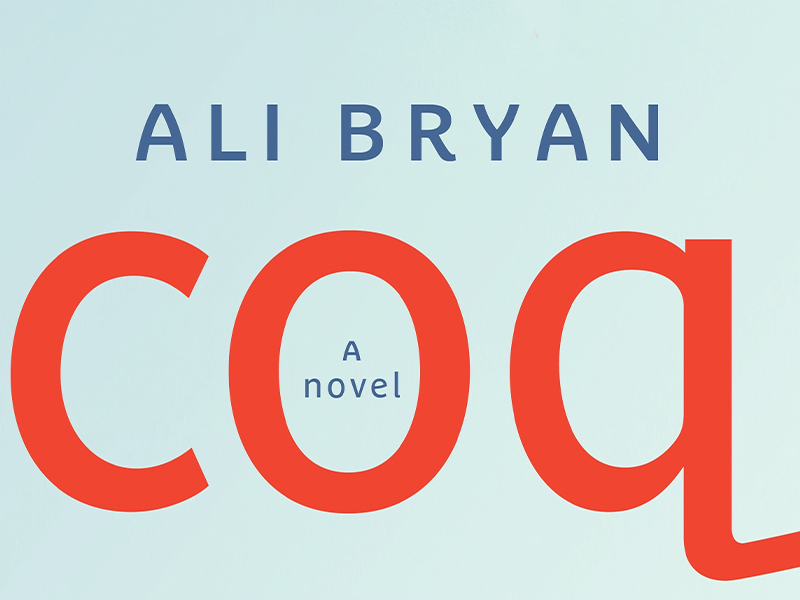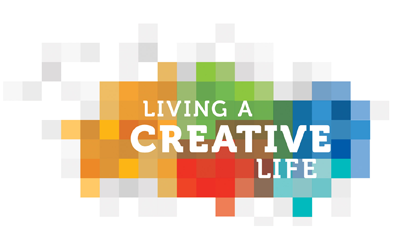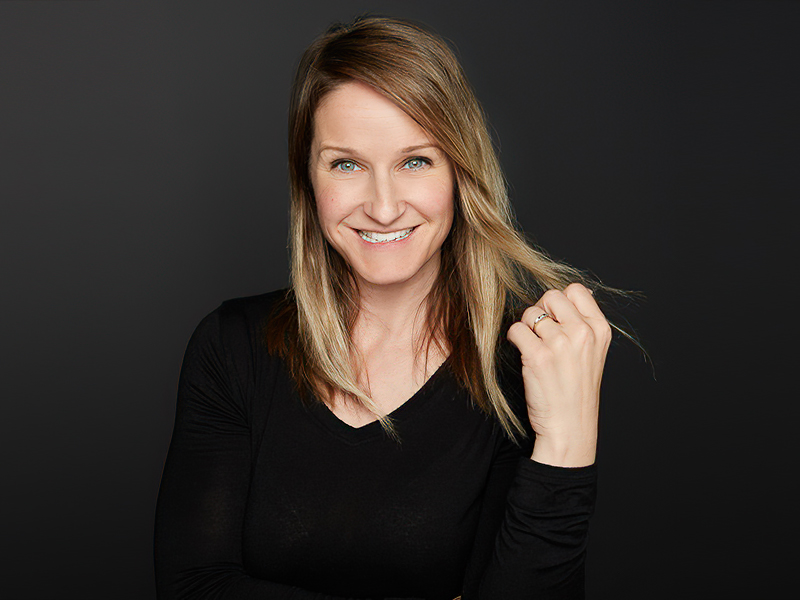Ali Bryan
Writer approaches life through creativity
Raising three kids is a full-time job, and then some.
So how on earth does Calgary novelist Ali Bryan, a mom of three, have three novels coming out in 2023 alone? Award-winning Calgary publisher Freehand Press is releasing Coq, a sequel to Bryan’s novel Roost, in May. In July, Macmillan publishes The Crow Valley Karaoke Championships. And then in November, Dottir Press is releasing The City, Bryan’s young adult novel that follows up her earlier YA effort The Hill.
Question: From everyone who ever dreamt of writing one novel but can’t find the time, to someone who just finished three: How is this possible?
It turns out that it’s one thing to live a creative life. But the deep, dark secret of protecting and nurturing and growing your creative life is that you have to develop creativity muscles, just like real muscles — and you have to exercise regularly.
“I’ve been getting up at 5am to write for as long as I can remember,” Bryan says in an email reply to a question.
It turns out that Bryan’s creative muscles spring from her other life, juggling three kids, a husband, a decade spent as a personal trainer, and her younger life in cadets and playing competitive sports.
“The discipline aspect for me was easy to master,” she says. “Writing begets writing. The more you do it, the better you get, like any skill.”
Point of Attack
That skill is on full display in Coq, where Bryan plunges readers into the world of the characters from her award-winning 2013 novel Roost, on a day designed to expose hard feelings — the wedding day of protagonist Claudia’s dad — and all the ensuing emotional complications that follow.
Coq is full of social, contemporary comedy about the collisions of different generations and how one family tries to navigate family tension and growing older with grace and good humour. A wedding day is also a great place to launch a story — everyone’s on an emotional edge, and the odds of something going wrong for some character is high — so you can’t help but become instantly engaged by it.
That choice of her fictional point of attack is a writer’s trick that Bryan says grew organically out of the world of those characters from Roost. “In my early years of writing, I would ‘write myself into a story’ and would often have to cut those introductory chapters,” she says. “In the case of Coq, the idea to start with the wedding (Claudia’s father getting married again) came immediately and shaped the plot accordingly. A wedding is such a perfect inciting incident.”
All of which raises another question. Bryan’s writing is energetic and animated. It flies by. The chapters are written with a kind of relentless forward motion of characters with too little available time and too many obligations to spend many moments planning to do something. Instead, they keep finding themselves plunged into things — which makes me wonder: what constitutes a chapter? Some novels have hardly any. Some have dozens. What’s the deal here? Aspiring novelists want to know.
“My work is driven by the character’s pursuit of what they want and what they need (these two concepts often work in opposition to each other so that the closer the character gets to what they want, they may get further from achieving what they actually need),” Bryan says in her email. “Each chapter represents this conflict and, in some capacity, reinforces the novel’s theme. I’m lucky at this point in my writing practice to rely on years of craft and my intuition to simply ‘know’ when a chapter is done, but it wasn’t always so clear cut.”

Starting Out
In fact, Bryan started out writing fiction around the same time she started out being a mom. “I was 25 and pregnant with my first child when I took a course at NSCC (Nova Scotia Community College) called Writing Fiction: Getting Started with Gwen Davies,” she says. “Up until that point I didn’t write creatively in any capacity.”
And as for the side of her creative life that taps into her younger self in The Hill and The City, Bryan says those are stories she wouldn’t have been able to tell very well when she was starting out putting words to page as a kid. “I was a mediocre child writer,” she says. “And though I read a lot of books I suffered from poor reading comprehension.
“I recall my parents having to attend a special meeting with one of my elementary school teachers to discuss my inability to understand what was going on in a story despite an otherwise perfect report card. I reflect back on this with such fascination.
“How odd that I couldn’t tell you at all (then) what was happening in the stories I read,” she says, “but have gone on to make a living writing them.”
‘Story is Everywhere’
Maybe the other ingredient that needs to go into the word soup that becomes a novel is that, in addition to developing finely tuned creativity muscles, Bryan also became a passionate reader, who learned how to craft compelling stories by digesting a lot of them.
“Each of the following (writers) had a specific influence,” she says, “whether about craft, literary style or the writing life, especially in terms of shaping me to become the author I am today: Maxine Tynes, Patricia Pearson, David Sedaris, Paul Quarrington, Todd Babiak, Maria Semple, Samantha Irby, Suzette Mayr, Meg Wolitzer, Miriam Toews, Louise Bernice Halfe and Bradley Somer.”
However she developed them, Bryan tries to apply her creative muscles to every aspect of her life, in addition to those pages she pounds out at dawn every morning. “Creativity is at the crux of how I approach everything in life from the benign moments of cooking dinner (which I loathe) or organizing a closet to the more critical decisions around parenting, art, finances and how I choose to spend my time,” she says. “I practice art every day. Even if I’m not physically writing (which is rare), I’m consuming it.
“Story is everywhere. The short-cut to a creative life is curiosity. I spent a lot of time asking questions, experimenting, failing, exploring, searching, seeking and thinking.”
And the best thing about nurturing those creative muscles, she says, is that they give you your own set of imaginative superpowers that are just as powerful — and more useful, let’s face it — than six-pack abs ever were. “Humans are wired for story,” she says. “We think, crave and respond to it. We use it to connect, explore, warn, prevent, provoke, soothe, influence, heal and disrupt. Story — both literally and metaphorically — makes us human.
“A creative life allows me to reconcile the grief and joy of living, and the horror and beauty of being human, and has helped me unpack what it means to be happy,” she adds.
‘Just Start’
And even Bryan concedes that not every day is an uninterrupted series of creative inspiration.
“Life inevitably gets in the way,” she says, “so I do give myself grace when I can’t write, but it’s those interruptions — whether a late-night stress call from my first-born away at university, my husband wanting to practice a move he learned in jiu jitsu, my son needing a ride to the gym, or fielding endless existential questions from my 11-year-old, that not only give my life purpose, it makes my writing more authentic.”
And if you think you have a book in you, Bryan says there’s no way to map it all out in advance anyway. “My advice is to just start,” she says. “Find the time of day that works for you and begin small — 15 minutes if that’s all you can manage. And do your best to maintain that time. Protect it with your life.
“It’s the same advice I used to give my personal training clients,” she adds. “No fitness goal or writing project can be achieved without some level of discipline and consistency. And if you fail? Start again. And again. And again.“
For more about Ali Bryan, go to her website.
About the Storytelling Project
The Storytelling Project raises awareness about Calgarians who, by living creative lives, are making Calgary a better city, effecting positive change and enriching others’ lives.
Have a story to share? Email us at submissions@calgaryartsdevelopment.com.

